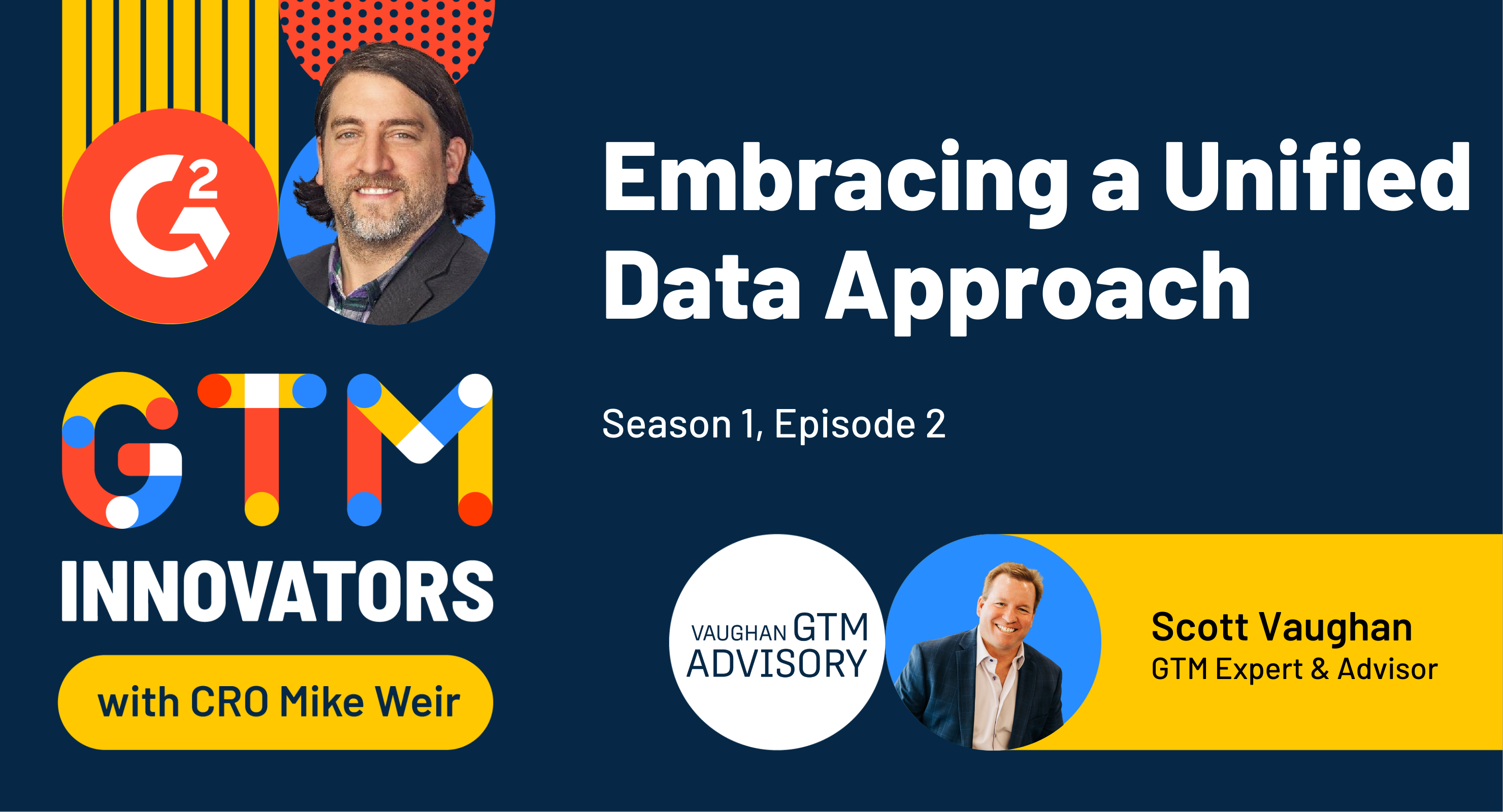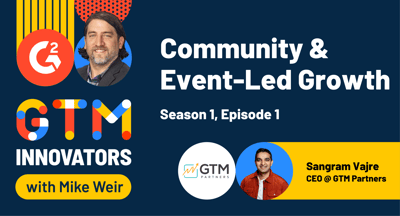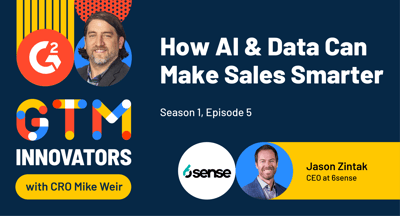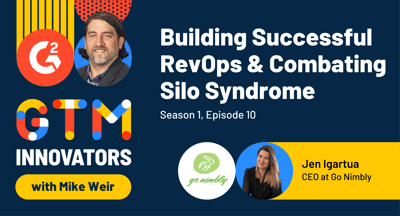April 4, 2023
 by Stephen Hoops / April 4, 2023
by Stephen Hoops / April 4, 2023

You’ve heard it time and again: aligning sales and marketing is pretty important.
Industry thought leaders and executives tout the benefits of sales and marketing alignment as an essential framework for software companies to achieve business goals and remain competitive.
The premise makes sense. When sales and marketing teams see eye-to-eye on performance goals and optimize collaboration methods, the result is a streamlined approach with better communication, efficient use of resources, and increased revenue.
Sales and marketing alignment is crucial for SaaS companies to succeed in today's competitive market. And although many companies struggle with achieving better alignment, one experienced go-to-market (GTM) leader says that it has become the bare minimum to succeed.
Scott Vaughan is an advisory consultant for CXOs, founders, and investors and is a former CMO at Integrate and UBM TechWeb. He’s also a regular contributing writer and event speaker on business transformation, marketing, and leadership topics.
In the second episode of GTM Innovators, G2 Chief Revenue Officer Mike Weir sat down with Scott to discuss why aligning company-wide is crucial to improve GTM strategies. In this recap, we’ll also explore Scott’s stance on creating a data-driven culture and how to operationalize data.
From generating and converting leads to improving customer experience and retention, the benefits are clear. Aligning sales and marketing is also essential to help companies harden themselves against competitors.
But according to Scott, sales and marketing alignment is no longer enough to gain a significant advantage.
Scott Vaughan
GTM expert & advisory consultant
We know that the buying process continues to become more complex, and Scott argues that many companies fail to keep up with buyers and customers.
“G2 is an example of how the buyer's mindset has changed,” says Scott. “They don't wait for a sales conversation and a demo. They'll go on G2, see who's in the category, see what people are talking about, what words they're using, ask whether that aligns with their thinking.”
There’s no denying that sales and marketing alignment is vital to get right and continue to prioritize. Scott thinks alignment needs to go further, becoming a company-wide initiative.
Scott Vaughan
GTM expert & advisory consultant
It’s often too easy to blame shortcomings on poor sales and marketing alignment when it could be something else. Scott suggests that companies don’t have the right information to change their way of thinking. In other words, they must explore and reimagine how they use and act on data.
Operationalizing data is no small challenge to overcome for companies of all sizes. Big challenges require small steps, and Scott has a few steps in mind.
Data tells a lot about where you’ve been, what is (or isn’t) working now, and potentially how to move forward. In reality, operationalizing data to its fullest will be a constant uphill battle that requires significant effort and planning.
Companies must get down to a foundational level and reimagine their culture to become data-driven. To do that, everyone across the organization must embrace and understand how they can contribute to a more unified data strategy.
On the podcast, Scott shares two ways SaaS businesses can shift their mindsets to improve data operationalization.
A data-driven culture always starts from the top.
When executive leaders commit to company-wide alignment through a unified data strategy, organizations have a better chance of making fundamental changes to their culture. This commitment also shows how data will improve and optimize their processes.
Scott Vaughan
GTM expert & advisory consultant
The next important part involves bringing together data stewards into a more centralized team that sits at the center of everything. For example, this means centralizing dedicated data professionals representing different areas of the organization, like finance, operations, and revenue (RevOps).
There’s no typical structure, and it can be as formal as needed. These teams will look different from one business to the next. Ultimately, that team has to come together based on the goals of the GTM strategy that’s in development. According to Scott, this centralized data team needs to answer three questions.
The path to better GTM strategies always includes understanding and actioning mission-critical data. And while sales and marketing alignment is necessary, data should be core to driving more comprehensive company-wide alignment.
In episode 2 of GTM Innovators, the full conversation with Scott Vaughan includes other takeaways such as:
Watch the full episode on YouTube and learn more about Scott and other GTM experts by subscribing to the GTM Innovators podcast today - available on Spotify, Apple Podcasts, iHeartRadio, Amazon Music, and more.
Stephen Hoops is a former Sr. Content Marketing Specialist at G2. He focused on creating content that helps tech industry sales professionals and B2B SaaS marketers find success with G2 products such as Buyer Intent, Review Generation, and more. After receiving his B.A. in Journalism from West Virginia University in 2013, he has helped countless B2B brands reach new highs through content creation and SEO. When not nerding out about the artistry behind well-written copy, Stephen can be found info-dumping about homemade cocktails, Italian cuisine, and why vinyl is the superior physical medium for music.
The world as we know it is changing in front of our eyes.
 by Stephen Hoops
by Stephen Hoops
Sales teams are perpetually eager to uncover new data.
 by Washija Kazim
by Washija Kazim
Directors get too much credit for the most beloved movie franchises.
 by Stephen Hoops
by Stephen Hoops
The world as we know it is changing in front of our eyes.
 by Stephen Hoops
by Stephen Hoops
Sales teams are perpetually eager to uncover new data.
 by Washija Kazim
by Washija Kazim


